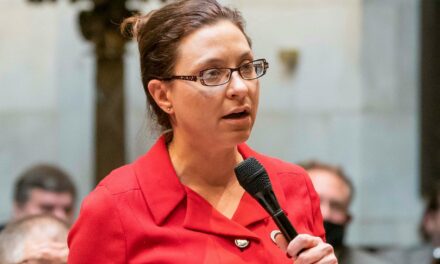
Disability Rights Wisconsin notes positive budget initiatives for people with disabilities
Wisconsin’s Protection and Advocacy system for people with disabilities is encouraged by the investment in people with disabilities demonstrated throughout Governor Walker’s 2017-2019 Biennial Budget Proposal.
“The Governor has shown a commitment for people with disabilities across the lifespan in his current budget proposal” stated Daniel Idzikowski, Executive Director. “DRW hopes to work closely with members of the legislature to support these investments in the lives of people with disabilities and their families.”
DRW is pleased to see the following items:
More than $650 million invested in K-12 Education includes an expansion of access to mental health services for school age children, training in trauma-informed care for personnel working with students, and programs to help youth with disabilities obtain competitive employment.
Wisconsin’s commitment to community-based Medicaid programs that are vital to the independence of Wisconsinites with disabilities. DRW is particularly pleased that the Governor has committed to eliminate the waiting list for 2200 children with developmental disabilities, physical disabilities, or several emotional disturbances who need long term supports; continued commitment to expand Family Care and IRIS across the state, eliminating waiting lists for adults with disabilities, and continuing support for Medicaid mental health programs such as Comprehensive Community Services.
Ensuring that participants who are aged 60 or older who self-direct their services in the IRIS program have access to ombudsman services.
Positive investments to support inmates with mental health needs, including expansion of the Opening Avenues to Reentry Success (OARS) program to five additional counties.
A 2% increase to support the personal care program direct care workforce caring for people with disabilities across the state.
Increased mental health funding for adults and children which includes funding for children’s crisis treatment and stabilization, the Child Psychiatry Consultation program, and development of a peer run respite center for Veterans in Milwaukee.
The elimination of the “premium cliff” and the expanded income and asset eligibility under the MAPP program.
While these are all positive steps toward an inclusive environment for people with disabilities, DRW has concerns that other provisions may impede this progress, including:
Flat funding for special education categorical aide for over eight years.
The effect of the Governor’s “Wisconsin Works for Everyone” 80 hours a month work requirement for people with disabilities and families of children with disabilities.
Proposed changes to BadgerCare requiring employment/training services for childless adults that may not include an exemption for people with disabilities.
The diminution of due process rights by eliminating the Labor and Industry Review Commission which reviews disability related employment discrimination claims.
The failure to address a significant investment in all types of public transit, given that so many people with disabilities do not drive or own a car, beyond the appreciated 2% increase for paratransit services.
DRW is pleased to see Wisconsin moving forward toward community inclusion for people with disabilities and a commitment to fund Medicaid services and supports that make this inclusion possible. We will work with policymakers to protect and sustain access to quality healthcare and long term care for all Wisconsinites with disabilities.
DRW’s other legislative and budget priorities can be found here:
http://www.disabilityrightswi.org/wp-content/uploads/2016/10/Budgets-Combined.pdf





